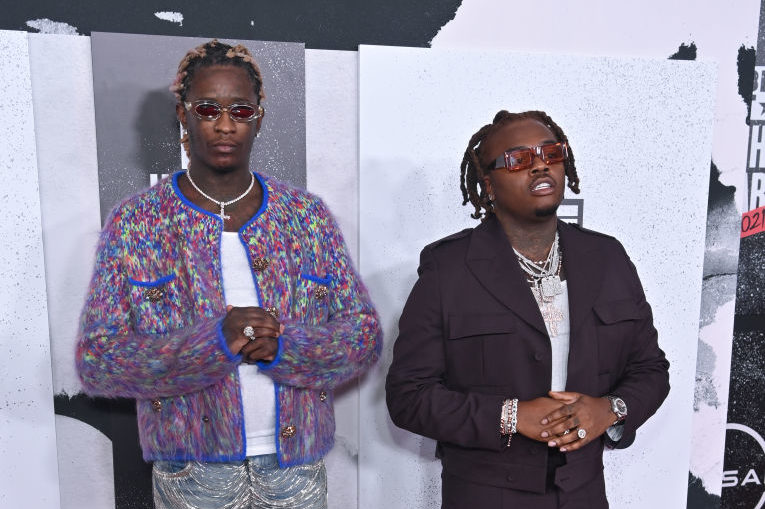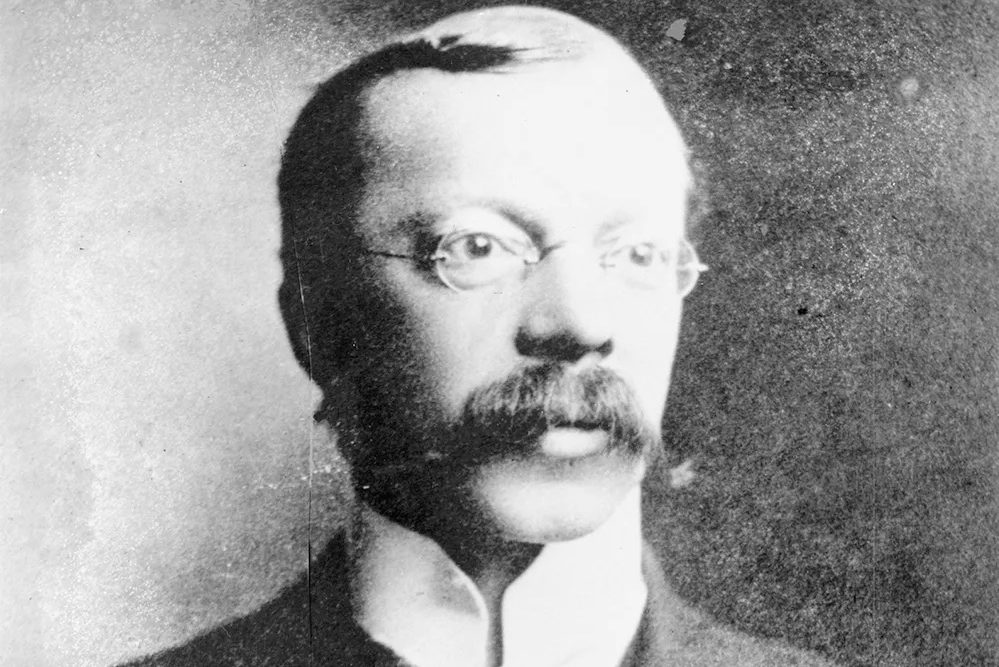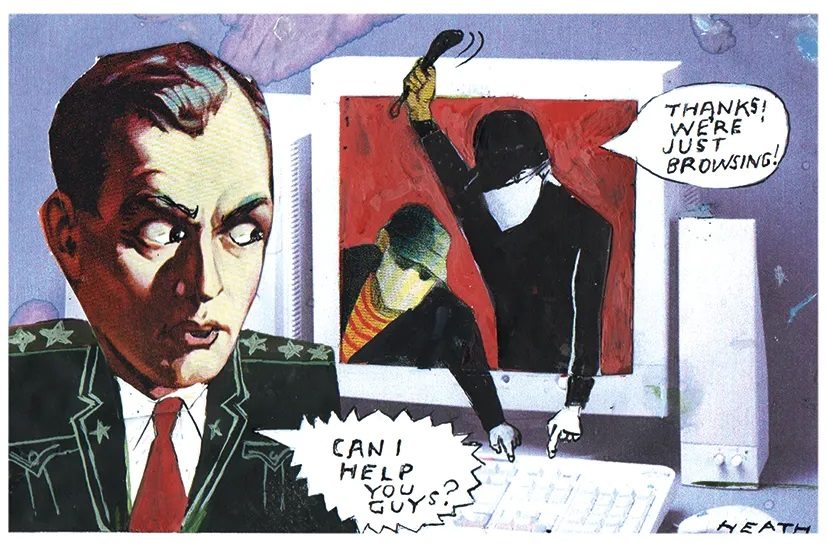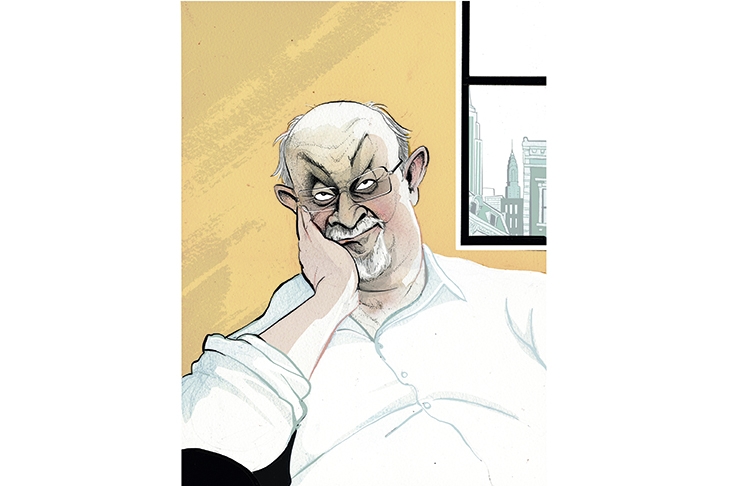Last May, a rapper who performs under the name Young Thug was arrested and named in a gang indictment in Atlanta. Right now, the trial relating to that arrest, the YSL RICO case, is underway. Fellow rapper Gunna and no less than twenty-six other young men associated with their Young Slime Life music collective, have been arrested and charged under the federal Racketeer Influenced and Corrupt Organization, or RICO, statute for “alleged gang activity.”
In the post-Black Lives Matter era, the case has become something of a cause célèbre, with prominent figures in the entertainment industry and beyond arguing that Young Thug and Gunna are essentially on trial because they are flashy young black men – who, in Thug’s case, may also be gay or bisexual.
On a track called “Sticky” late last year, the popular and decidedly non-gangsta Canadian rapper Drake called to “free Big Slime out the cage (let Thugga go).” Vouching for Young Thug’s innocence, he said: “Hey yo Eric/ bring them girls to the stage/ because somebody’s getting paid/ and free Big Slime (Thug) out the cage.” In the video for a different charting Drake song, “Fall Back,” the introductory “title card” reads “Free YSL.”
One point of particular controversy has been the use of rap lyrics that explicitly discuss violence as circumstantial evidence in criminal trials, something Georgia prosecutors plan to do against the YSL collective. In a primetime interview with ABC News, rapper and activist Michael “Killer Mike” Render spoke out against this approach, making the innovative argument that most rappers are essentially lying or exaggerating. “If we allow the courts to prosecute… men based on characters they create and stories of pretend they tell in rhyme then, next, they’ll be at your door,” he said.
Atlantic Records, perhaps not entirely for disinterested moral reasons, is actually circulating a petition encouraging legislative bodies at all levels to ban any usage of any musical lyrics (presumably including heavy metal, EDM, etc.) as criminal evidence.
At least one US state, New York, recently passed a hip hop-focused bill titled “Rap Music on Trial” or the “Rap Music on Trial Act,” which explicitly limits most use of rap lyrics in criminal matters.
Thug himself, real name Jeffery Lamar Williams, seems to be toeing the party line here almost verbatim, plaintively writing in an open letter to fans: “I used my art form, my gift, to change my circumstances… now I don’t have freedom.”
But is this really a straightforward story of anti-black, anti-rap discrimination? A deeper look into the YSL case paints a far more complicated picture than “street poet done wrong.”
The actual indictment in the matter is eighty-eight pages long. It includes fifty-six counts related to “murder, attempted murder, armed robbery, aggravated assault with a deadly weapon, theft, drug dealing, carjacking, and witness intimidation.” It details 182 separate instances of “gang activity and criminal conspiracy.”
Thug, charged in the RICO case primarily with criminal conspiracy, is described the prosecuting attorneys as “something of a mob boss,” and appears to have almost certainly committed dozens of serious crimes that he is not being charged with, including trafficking meth and at least one murder threat at a popular Atlanta mall. Gunna, who might want to go entirely by his government-assigned name (Sergio Kitchens) during the trial, faces one serious racketeering count. He is also accused in the YSL indictment of being in possession of both stolen property, as well as meth, marijuana and hydrocodone/Vicodin, when arrested.
The YSL clique also appears to be living up to their street reputation off the bricks, with three members recently being accused of stabbing another inmate while inside the Atlanta-area Fulton County Jail. According to police sources, Christian “Brhis” Eppinger, Rodalius “Lil’ Rod” Ryan, and Damone “Bali” Blalock were all involved in the knifing and near murder of a fellow Graybar Hotel guest earlier this month. All of the men now face additional felony charges in connection with this event. Eppinger, notably, was already confronting attempted cop killing counts in addition to his RICO charges, after shooting decorated eleven-year Atlanta Police Department veteran David Rodgers in the head as the lawman attempted to serve his warrant. Solid folks all, held back by socioeconomic factors!
A bit of research beyond the YSL case, informed by my own background growing up in the hood (1990s Chicago and East Aurora, Illinois), makes clear that real crimes often are boasted about in rap lyrics. In Chicago, rappers like King Von and Lil’ Durk famously documented street-level gang warfare in songs like “Shoulda Ducked” — an explicit discussion of the murder of rival FBG Duck. Prominent, hit Midwestern American hip-hop records famously include lyrics that directly reference violence and gang affiliation, from the notorious line “(We) smokin’ on some duck” to the classic King Von chorus “We from 64th and 65th…we not from 63rd.”
You would have to be, as the kids say, a complete cornball not to notice this — along with all the apparent American Sign Language in the video background. Known for songs like “Take It to Trial” and “Dollaz on My Head,” Thug, Gunna and the rest of YSL seem to have given off much the same vibe on the equally dangerous streets of a very different American city. The grand jury indictment in the YSL case refers to specific “lyrics” and “social media posts” as some of the more significant evidence of criminal activity by the group.
The YSL case seems to interact with the complexities and pathologies of “hood” life in a number of other ways. Remarkably, more than a month into the jury selection process, not one juror has yet been seated in the matter. Some of this is simply due to normal requests for “hardship” exemptions: mechanics and carpenters and such have requested release from a panel that theoretically could sit for nine to twelve months in the wide-ranging case. However, Atlanta street culture also seems to have played a major role. Per one local source, prospective jurors had to fill out a “250-item questionnaire that surveyed their opinions on rap music, law enforcement, neck tattoos and more.”
While simply being aware of who Young Thug was would almost certainly not have disqualified a juror, few citizens seem to have survived the entire (apparently) ten-plus page ordeal. There have also been “other incidents” in the courtroom, with “multiple” instances of contraband somehow being smuggled in. Additionally, intimidation of those eventually chosen as jurors (or witnesses) by the defense is a major concern.
The judge in the case, respected Atlanta jurist Ural Glanville, has ordered defense counsel for YSL not to share any contact information for witnesses with their clients, noting a statement by the prosecution that non-defendants involved with this case fear “not only for their own lives but for their families’ lives.” In response, defense lawyer Brian Steel obviously denied that the men he represented — not Angles but angels — would engage in any witness tampering. However, he did add: “I cannot wait to receive the discovery (report),” which would presumably contain all witness information.
Interestingly and laudably, the person least tolerant of the whole traveling circus has been left-leaning, black Fulton County district attorney Fani Taifa Willis, a no-nonsense prosecutor who has pursued Donald Trump but also gone after crooked big-city teachers accused of rigging the annual board test scores for mostly-minority schools.
When asked directly about claim’s of Young Thug’s innocence, and about a pending Georgia bill to limit the use of hip hop and other musical lyrics as evidence, Willis memorably said: “I think that, if you decide to admit your crimes over a beat, I’m going to use it.” She went on to give some free-of-charge legal advice, noting: “I have some… advice: don’t confess to crimes on rap lyrics if you don’t want them used — or at least get out of my county.”
Per this sit-down and other major interviews, Willis plans to pursue the YSL case fairly hard for a simple reason: she thinks most of the suspects are guilty. As a tip to young men everywhere: if you want to present yourself as a future orthopedic surgeon or at very least an innocent victim of the white man, it’s probably not a good idea to name yourself “Thug” or “Gun Man” and talk a lot about killing people.
Will a jury agree with me, a year or so from today? Probably — but, it’ll be what it is, as Thug might say.

























